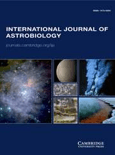
International Journal of Astrobiology
metrics 2024
Advancing Knowledge in the Search for Extraterrestrial Life
Introduction
International Journal of Astrobiology, published by Cambridge University Press, stands as a pivotal resource in the interdisciplinary realm of astrobiology, merging insights from Earth and Planetary Sciences, Ecology, Evolution, Behavior, and Systematics, as well as Physics and Astronomy. With a solid impact factor denoting its relevance—particularly as a Q2 journal in Earth and Planetary Sciences and strong rankings in Ecology and Space studies—this journal provides a platform for cutting-edge research and groundbreaking discoveries that investigate the potential for life beyond Earth and the conditions that support its existence. Since its inception in 2002, the journal has aimed to foster a deeper understanding of astrobiological concepts through high-quality articles, reviews, and discussions, making it an indispensable tool for researchers, students, and professionals alike. Although it operates under a subscription model, the journal's commitment to advancing knowledge in astrobiology remains paramount, inviting diverse contributions that span the complexities of life in the universe.
Metrics 2024
 0.37
0.37 1.70
1.70 1.50
1.50 43
43Metrics History
Rank 2024
Scopus
IF (Web Of Science)
JCI (Web Of Science)
Quartile History
Similar Journals
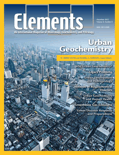
Elements
Connecting Scholars through Groundbreaking ResearchElements is a premier academic journal published by the Mineralogical Society of America, dedicated to advancing knowledge in the fields of Earth and Planetary Sciences and Geochemistry and Petrology. Since its inception in 1973, this journal has established itself as a leading source of impactful research, evidenced by its prestigious Q1 rankings in both categories in 2023, placing it among the top journals globally with Scopus ranks of #18 and #23, respectively. Elements is uniquely positioned to foster interdisciplinary dialogue, offering a platform for groundbreaking studies that explore the fundamental processes shaping our planet. Although it operates without an open access model, its rigorous peer review process guarantees the integrity and quality of published work, making it an essential resource for researchers, professionals, and students eager to stay abreast of the latest developments in mineralogy and earth sciences. With a commitment to excellence, Elements continues to push the boundaries of our understanding of geological phenomena and their implications for both science and society.
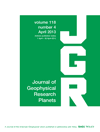
JOURNAL OF GEOPHYSICAL RESEARCH-PLANETS
Illuminating the Complexities of Planetary ProcessesThe JOURNAL OF GEOPHYSICAL RESEARCH-PLANETS, published by the American Geophysical Union, stands at the forefront of planetary science research, serving as an essential resource for scholars and practitioners exploring the complexities of planetary bodies within our solar system and beyond. With its ISSN 2169-9097 and E-ISSN 2169-9100, this respected journal has demonstrated a notable impact within the academic community, holding a prestigious Q1 ranking in multiple categories including Earth and Planetary Sciences, Geochemistry and Petrology, Geophysics, and Space and Planetary Science as of 2023. Its Scopus rankings further highlight its significance, placing it among the top echelons of Earth and planetary sciences—particularly as it ranks 12th in its broad category. While not an open access platform, the journal provides invaluable insights into planetary processes, geological phenomena, and the ongoing exploration of celestial environments, making it indispensable for researchers, professionals, and students dedicated to advancing our understanding of planetary systems. Established in 1996 and continuing to publish until 2024, the journal remains committed to fostering innovation and collaboration in this dynamic field of study.
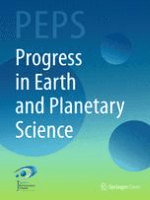
Progress in Earth and Planetary Science
Pioneering interdisciplinary collaboration in Earth sciences.Progress in Earth and Planetary Science is a premier open-access journal published by Springer, dedicated to advancing the field of Earth and planetary sciences. Since its inception in 2014, this journal has emerged as a prominent platform, achieving a Q1 ranking in the Earth and Planetary Sciences category, reflecting its high impact and rigorous peer-review process that ensures the highest quality of published research. With its broad scope encompassing diverse subfields within the Earth sciences, the journal aims to foster interdisciplinary collaboration and innovation among researchers, professionals, and students. The journal's commitment to accessibility through its open access model promotes the dissemination of knowledge globally, allowing critical research findings to be shared widely within the scientific community. Located in the United Kingdom, Progress in Earth and Planetary Science continues to play an essential role in shaping the future of Earth and planetary research from 2014 to 2024 and beyond.

Planetary Science Journal
Connecting Worlds: Interdisciplinary Insights into Planetary SystemsThe Planetary Science Journal, published by IOP Publishing Ltd in the United Kingdom, stands at the forefront of research in the fields of planetary science, astronomy, and geophysics. With its open access model established since 2020, this journal aims to democratize access to groundbreaking findings that explore the complex interactions between celestial bodies and their atmospheres, geology, and climates. Recognized for its high quality, the 2023 impact factor places the journal in the prestigious Q1 category across multiple disciplines, including Astronomy and Astrophysics, Earth and Planetary Sciences, and Space and Planetary Science. Ranked favorably among its peers, with notable scores in Scopus rankings, the journal seeks to contribute significantly to advancing our understanding of planetary systems and their formation, encouraging interdisciplinary collaboration among researchers, professionals, and students alike. By fostering a community of innovation and inquiry, the Planetary Science Journal is committed to publishing pioneering research that addresses critical questions of our universe.
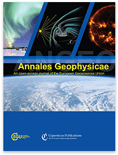
ANNALES GEOPHYSICAE
Innovating Research in Geophysics and Related FieldsANNALES GEOPHYSICAE is a distinguished open access journal published by COPERNICUS GESELLSCHAFT MBH, renowned for its contributions to the field of geophysics and related disciplines. Since its inception in 1996 as an open access journal, ANNALES GEOPHYSICAE has provided a vital platform for researchers to disseminate their findings covering a wide array of topics within Astronomy and Astrophysics, Atmospheric Science, and Earth and Planetary Sciences. The journal enjoys a commendable reputation, evidenced by its impressive 2023 category quartiles, ranking Q1 in Earth and Planetary Sciences (miscellaneous) and Q2 in several other relevant categories, reflecting its significance in the global research community. Based in Germany and accessible to a diverse audience, ANNALES GEOPHYSICAE serves as an essential resource for academics, practitioners, and students alike, striving to foster advancements in our understanding of geophysical phenomena and encouraging collaboration across disciplines.
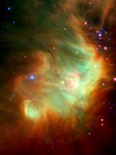
Annual Review of Earth and Planetary Sciences
Illuminating the Dynamics of Our Planet and BeyondAnnual Review of Earth and Planetary Sciences is a leading scholarly journal published by Annual Reviews, dedicated to advancing our understanding of the dynamic processes governing the Earth and its celestial companions. With ISSN 0084-6597 and E-ISSN 1545-4495, this esteemed journal, established in 1976, has consistently provided comprehensive reviews that synthesize cutting-edge research across various disciplines, including astronomy, astrobiology, geology, and planetary science. Notably, the journal has achieved a remarkable position in the academic landscape, ranking in the Q1 quartile across multiple categories, including Astronomy and Astrophysics and Earth and Planetary Sciences, with Scopus rankings placing it at the forefront of these fields. The journal's commitment to facilitating open access to critical scientific advances, though not fully open, allows for maximum reach within the research community. Researchers, professionals, and students alike can benefit from the high-impact articles designed to foster collaboration and innovation within the fields of earth and planetary science.
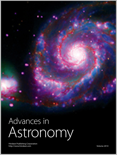
Advances in Astronomy
Bridging Knowledge Gaps in Astronomy and Planetary Sciences.Advances in Astronomy is a prestigious open-access journal published by HINDAWI LTD, dedicated to the field of astronomy and astrophysics. Established in 2008, the journal aims to disseminate significant research findings and advancements in the understanding of celestial phenomena, planetary sciences, and the intricate workings of the universe. With an impact factor that reflects its relevance in the scholarly community, Advances in Astronomy holds a commendable rank of Q3 in both Astronomy and Astrophysics as well as Space and Planetary Science categories, indicating its importance within these fields. The journal also showcases a commitment to open-access publishing, ensuring that research is readily available to both the scientific community and the public. Researchers, professionals, and students alike are encouraged to contribute to this dynamic forum to share knowledge and foster collaboration in exploring the wonders of the cosmos.
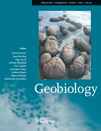
Geobiology
Bridging Disciplines to Understand Our PlanetGeobiology, published by WILEY, is a prestigious journal at the forefront of interdisciplinary research in Earth and Planetary Sciences, Ecology, and Environmental Science. With an ISSN of 1472-4677 and an E-ISSN of 1472-4669, this journal has achieved remarkable recognition as evidenced by its Q1 categorization in multiple relevant fields, including Earth and Planetary Sciences, Ecology, and Environmental Science, according to the 2023 quartile rankings. Covering a diverse range of topics from biogeochemical cycles to the impacts of climate change on biodiversity, Geobiology serves as a vital platform for researchers, professionals, and students alike. The journal boasts impressive Scopus rankings, placing it within the top tiers of its fields, which is indicative of its significant influence and contribution to advancing knowledge. Although it does not operate under an Open Access model, Geobiology ensures widespread reach and accessibility, allowing for impactful dialogues within the scientific community. Researchers are encouraged to submit their findings and engage with cutting-edge studies to advance our understanding of the interplay between biological and geological processes.
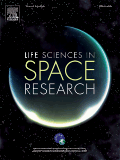
Life Sciences in Space Research
Exploring the Frontiers of Life Beyond EarthLife Sciences in Space Research, published by ELSEVIER, is a leading journal dedicated to advancing the understanding of life sciences in the context of space exploration and extraterrestrial environments. With a focus on interdisciplinary research, the journal addresses critical topics spanning Agricultural and Biological Sciences, Astronomy and Astrophysics, Ecology, and Health, Toxicology and Mutagenesis. Established in 2014 and set to continue through 2024, it is recognized with a solid impact factor and impressive quartile rankings—including Q2 in several categories, reflecting its influential position among contemporary scientific discourse. The journal welcomes a diverse array of research articles that delve into the implications of space travel on biological systems, innovative ecological practices for sustained extraterrestrial habitation, and critical health-related issues associated with radiation exposure. Researchers, professionals, and students will find Life Sciences in Space Research an invaluable resource for cutting-edge insights and developments in the rapidly evolving field of astrobiology and space science. For more information, please access the journal through its designated platform.
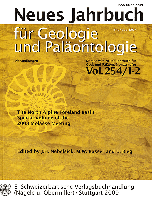
NEUES JAHRBUCH FUR GEOLOGIE UND PALAONTOLOGIE-ABHANDLUNGEN
Unlocking the Secrets of Earth’s EvolutionNEUES JAHRBUCH FUR GEOLOGIE UND PALAONTOLOGIE-ABHANDLUNGEN, published by E SCHWEIZERBARTSCHE VERLAGSBUCHHANDLUNG, is a distinguished scholarly journal based in Germany that has made significant contributions to the field of Earth and Planetary Sciences with a particular emphasis on Paleontology. With its ISSN: 0077-7749, this journal provides an essential platform for researchers, professionals, and students to explore cutting-edge research and developments that enhance our understanding of geological and paleontological processes. Boasting a robust ranking of #67 out of 113 in Scopus for the category of Earth and Planetary Sciences and achieving a Q3 quartile ranking in Paleontology, it stands as a significant resource in the global academic community. Though not an open-access journal, it offers valuable insights from 1987 onwards, ensuring a comprehensive archive of high-quality research articles published from 1995 to 2024. Its scholarly impact continues to resonate, making it a vital reference point for advancements in the ever-evolving disciplines of geology and paleontology.